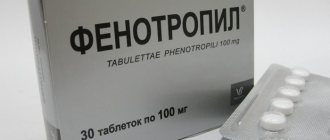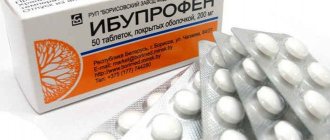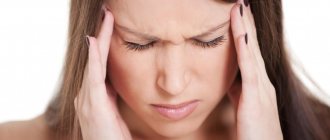Hot weather can be accompanied by loss of appetite, poor sleep, periodic weakness and other unpleasant sensations. Among the general precautions in the heat that experts advise to take to maintain health:
- wear a hat and clothes made of light fabrics outdoors;
- do not stay in the open sun for a long time, especially from 12 to 16 hours;
- Use sunscreen and protect your skin from direct sunlight.
There are also more specific recommendations on nutrition and drinking regime in hot weather. Gastroenterologist-nutritionist at our center Svetlana Igorevna Kovaleva shared tips to help improve well-being when the temperature outside reaches +30°C.
How much and what to drink in the heat?
People's specific daily fluid needs depend on age, weight, gender and amount of physical activity. They are also influenced by environmental factors that accelerate water loss through the skin, such as air temperature and humidity. As the temperature rises, the amount of fluid needed to restore fluid balance in the body increases.
On average, we lose 2 to 2.5 liters of fluid per day through sweating, breathing, urine and feces. Therefore, at normal temperatures we need about 6-8 glasses of water or other liquid. Higher air temperature and humidity increase the rate of evaporation from the surface of the skin, we sweat more, and we need to replenish our fluid levels more frequently. Therefore, on hot days, the need for liquid may increase to 3 liters.
The good news is that this goal can be achieved through a variety of sugar-free drinks, not just drinking water. Just keep in mind that caffeinated drinks have a diuretic effect, causing us to lose fluid, so in hot weather it is better to keep them to a minimum.
It is also important to keep in mind that drinking large amounts of fluid in a short period of time in hot weather is not beneficial. For most people with healthy kidneys, this problem usually resolves by urinating more frequently. But taking in too much water can cause your kidneys to be unable to maintain electrolyte balance, causing your blood to become very thin. This affects the functioning of our body, for example, lowering blood pressure levels.
Hyponatremia is a condition caused by drinking too much water, resulting in dangerously low sodium levels. Athletes who participate in competitions and drink too much fluid are more likely to develop this condition. Therefore, during regular exercise with high loads, it is better to use special sports drinks - isotonics - to restore the water-salt balance.
There are also medical restrictions according to which it is not recommended to consume a lot of fluid, as it can be retained in the body, leading to edema. This situation may occur if you have chronic kidney or heart disease. If you have any health problems or symptoms, contact your healthcare provider to determine your daily water intake.
Drinking alcohol in the heat is strictly not recommended; it not only dehydrates the body, but also increases the likelihood of heat stroke and worsening cardiovascular diseases, including heart attack or stroke.
Publications by our doctors on the topic “How to overcome post-Covid syndrome”
- Lung recovery after coronavirus
- Restoring the sense of smell after coronavirus
- Loss of smell due to COVID-19 - advice from an otolaryngologist
- Overcoming mental disorders during post-Covid syndrome
- We are experiencing COVID. How the coronavirus pandemic affects mental functioning
- Post-Covid screening - examination after a new coronavirus infection
- Recommendations from a cardiologist after suffering from COVID-19
- Coronavirus turned out to be “vindictive” - what is important to know
- Melatonin and COVID-19 - a cure for Trump
- Post-Covid syndrome: program for diagnosis and regression of post-Covid symptoms. How to Manage Long-Term Long COVID Symptoms
What foods can help restore water loss?
Water contained in food makes up about 20-30% of the total volume of liquid we consume. Some foods, primarily vegetables and fruits, have a high water content. The highest indicators in this regard are:
- cucumber;
- zucchini;
- celery;
- iceberg lettuce;
- tomato;
- Bell pepper;
- strawberry;
- melon.
Recipes that are high in liquid can also help with hydration levels. Soups, stews, and cereals are good examples of meals, and of course, you can add healthy, seasonal ingredients like vegetables and fruits to them.
Can eating and drinking help us cool down?
Refreshing sorbet and ice cream seem like a natural choice when we want to cool down, but they can actually do more harm than good and make you feel extra thirsty due to the increased sugar content. Cold food may provide an initial cooling effect, but it is short-lived. This is because, firstly, consuming food leads to an increase in body temperature, as the process of digestion causes the release of heat. Secondly, our body will try to compensate for the rapid cooling due to cold food by additionally increasing our internal temperature. So we may end up feeling even hotter than we started out.
Drinking hot tea on a sunny day may seem like a strange idea, but in reality, such drinks can help regulate your body temperature. They raise our core temperature, which causes the body to cool down, causing us to sweat more and lose heat through the skin.
Which drinks quench your thirst best?
Most sugary drinks, and especially soda, are poor thirst quenchers and cause spikes in blood sugar levels and lead to excess sugar consumption. Freshly squeezed fruit juice or fruit smoothies are acceptable, but should be limited to 150 ml (1 glass) per day due to the fact that they contain many natural sugars, most of them fructose.
Chilled water with lemon is good for quenching thirst. You can also drink mineral water, which will replenish the minerals lost through sweat. Green tea is considered one of the best thirst-quenching drinks.
It is better to drink water that is too cold in small portions and small sips. For people with chronic diseases of the stomach and pancreas, too cold foods and drinks are contraindicated.
What tests and studies need to be done to make a diagnosis?
To find out the cause of this symptom, it is necessary to carry out a number of diagnostic procedures. To determine the functional state of the patient’s digestive system, the doctor prescribes laboratory and instrumental studies.
In the first group, stool analysis is of greatest importance. Changes in its indicators may indicate a violation of the liver, insufficiency of digestive enzymes. If there is a suspicion of the infectious nature of the disease, a bacteriological study is carried out, which makes it possible to determine the causative agent.
Among the instrumental methods, ultrasound of the abdominal organs is most often used. It allows you to roughly assess the condition of the digestive system.
If gastritis and peptic ulcer of the stomach and duodenum are suspected, an FGDS is performed. A special tube is inserted into the patient's esophagus, at the end of which a camera with a light is attached. The doctor gradually carries it up to the duodenum and visually assesses the condition of the mucous membrane of the digestive tract. This way you can determine the presence of inflammatory changes, loss of integrity and other signs of pathology. In some cases, during an FGDS, the doctor takes material for a biopsy - pinches off a microscopic piece of tissue, which is then examined under a microscope.
What is better to exclude from the menu in the heat?
More filling foods high in protein, fat and/or sugar make us feel hotter. This happens because its digestion is accompanied by the release of more heat and an increase in body temperature. Therefore, in hot weather it is better to limit such food or replace it with other, less nutritious foods. It is also not recommended to eat a lot of ice cream, which contains a high percentage of fat and sugar and puts increased stress on the pancreas.
Fatty, smoked and fried foods create additional stress on the gastrointestinal tract. Therefore, to unload the body, it is better to use lean beef, turkey, chicken or fish, prepared by stewing, baking or boiling.
Include a variety of salads, dishes from fresh and cooked vegetables and fruits in your menu, but do not overdo it if you have not previously been in the habit of eating a lot of them. For people with a sensitive gastrointestinal tract, it is better to eat vegetables and fruits without peeling, raw vegetables, alternate with boiled, stewed or baked ones and not overuse okroshka made with kvass or kefir or beetroot.
Principles of a recovery diet
Diet is a key component of the treatment of intestinal intoxication. It is advisable to follow a special diet for two to three weeks. A gentle diet should not be abruptly interrupted, so as not to cause repeated digestive upset and provoke inflammation of the pancreas.
You need to gradually add familiar foods to the menu and carefully monitor the body’s reaction. It is recommended to keep a diary in which you need to record all new dishes. If any product or dish causes heartburn, diarrhea, pain or abdominal discomfort, you should avoid it. T
It is also advisable to visit a doctor and undergo a medical examination. This will help ensure that the body has fully recovered.
What precautions will protect against gastrointestinal problems?
At high air temperatures, food even in the refrigerator can spoil much faster, so you should not prepare food in excess. To cut down on meal prep time, freeze pre-cooked foods and then prepare fresh meals from them as needed.
Fruits and vegetables must be washed thoroughly, as hot weather promotes the growth of microbes that cause intestinal infections.
Use products with an expiration date and undamaged packaging, do not violate their shelf life. If the appearance, smell or taste of food is suspicious, it is better to refuse it. This especially applies to dairy products, baked goods with cream, and salads with mayonnaise, which are quickly perishable products.
What you need to know about treating heaviness in the stomach
The presence of symptoms for a long time is a reason to seek advice from a gastroenterologist. During the consultation, the specialist performs the following actions:
- studying the patient's condition;
- collection of tests;
- X-ray and ultrasound of the abdominal organs;
- examination of the stomach and duodenum using a special method - video endoscopy;
- magnetic resonance imaging.
Some signs may indicate serious problems with the digestive system.
First of all, an investigative connection must be established. If you experience heaviness and frequent pain in the stomach after eating, you should pay more attention to your diet, differentiate between breakfast, lunch and dinner, and exclude too fatty, salty and spicy foods from your meals.
The full list of studies is determined individually. After receiving all the data, treatment is prescribed taking into account the characteristics of the individual patient. To eliminate the feeling of heaviness in the hypogastrium, use:
- diet therapy;
- drug treatment, in particular herbal preparations, for example, GastroMix;
- surgical intervention - prescribed for serious illnesses.
What does the doctor think?
“For stomach diseases, it is not recommended to resort to treatment with antibiotics, because this can cause complications on the liver and kidneys.”
Under no circumstances should you self-medicate for discomfort, heaviness and pain in the stomach. Professional diagnosis and timely initiation of therapy will help eliminate complications and progression of pathologies that provoked an untidy symptom. To make your stomach work like a clock, you need... read our article.
Diet in the heat
Seasonal changes, including temperature and daylight hours, affect our appetite. Usually in the summer our appetite decreases, especially when we are hot. One reason for this is that the body tries to regulate our body temperature by reducing heat-producing functions, including food digestion. Although it is impossible to influence such a drop in appetite, we can use food containing the necessary nutrients and give up fast food and sweets.
To maintain a stable supply of nutrients to the body and maintain blood sugar levels, it is useful to follow a light diet. Breakfast remains an important and obligatory meal; during the day it is better to switch to light snacks, vegetable salads and soups. Dinner can be made more dense and high in calories, but eat no later than three hours before bedtime. Regular intake of food will prevent disturbances in the outflow of bile and ensure optimal functioning of the intestines without interruptions.
In the heat, the need for calories from food decreases. Therefore, the best choice is light food and small portions. Prepare fish and meat products or complex carbohydrates in the morning and evening. For lunch, vegetables, herbs, fruits and berries are preferable, as they are easier to digest. They can be supplemented with egg dishes, cheese or cottage cheese. Vegetable fats are preferable, for example, olive oil, they are distributed evenly throughout the day. The Mediterranean diet can be used as a model for eating in hot weather.
We hope that our tips will help you maintain good health in the heat and enjoy the hot summer.
If your health worsens and unpleasant symptoms appear, especially in the presence of chronic diseases, do not delay contacting a doctor, as exacerbation of diseases in the heat develops at an accelerated pace.
3.Diagnostics for loss of appetite
If the patient himself cannot determine the reasons that caused the loss of appetite, and there are no obvious accompanying symptoms, then the examination should be comprehensive and cover all possible causes. Basic studies, as a rule, reveal violations of certain processes and allow us to move on to more thorough diagnostics in a certain area. The required initial diagnostic minimum includes:
- general blood analysis;
- blood for hormones;
- Ultrasound of the abdominal cavity;
- urine test;
- HIV test;
- pregnancy test;
- liver tests;
- thyroid examination.
About our clinic Chistye Prudy metro station Medintercom page!











